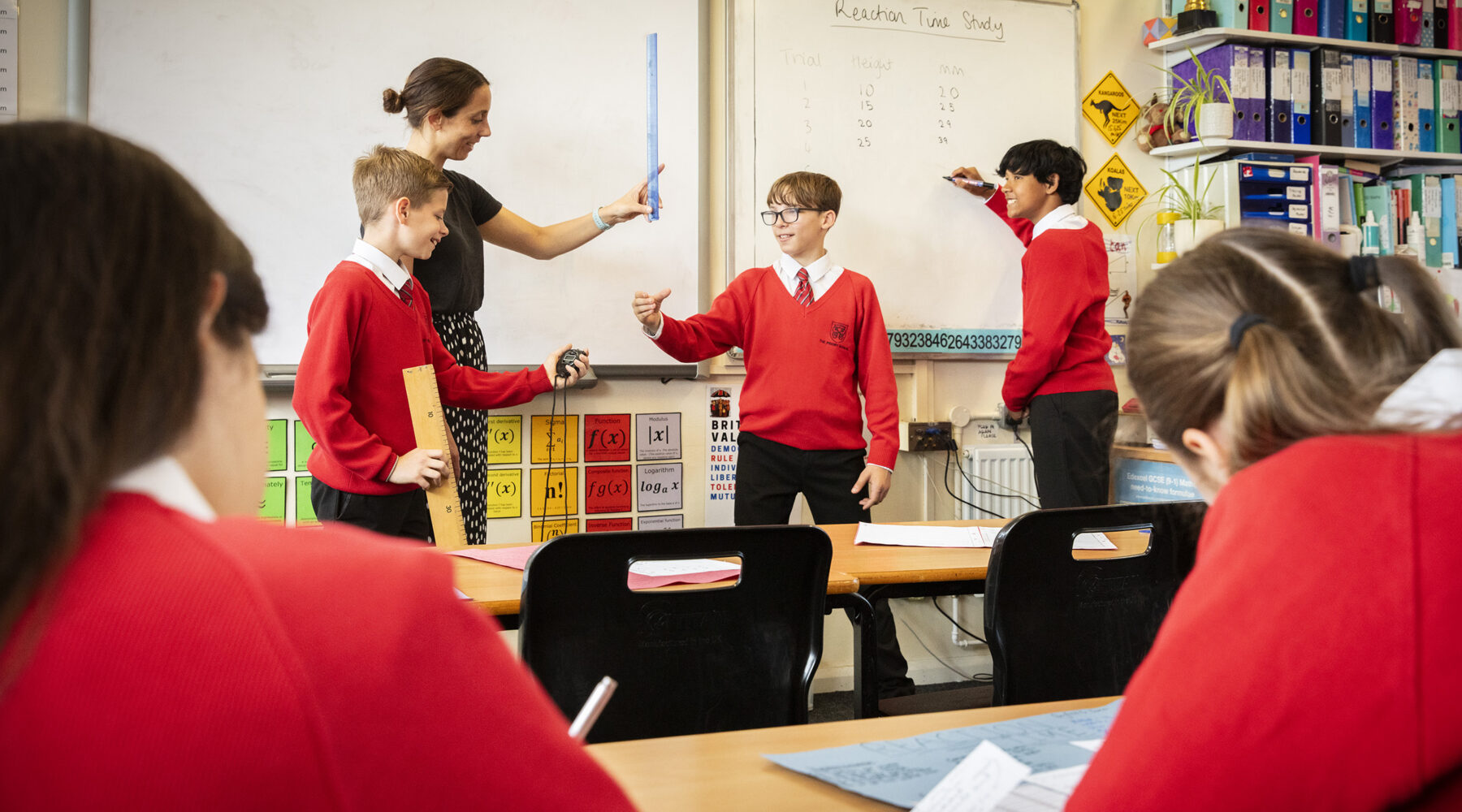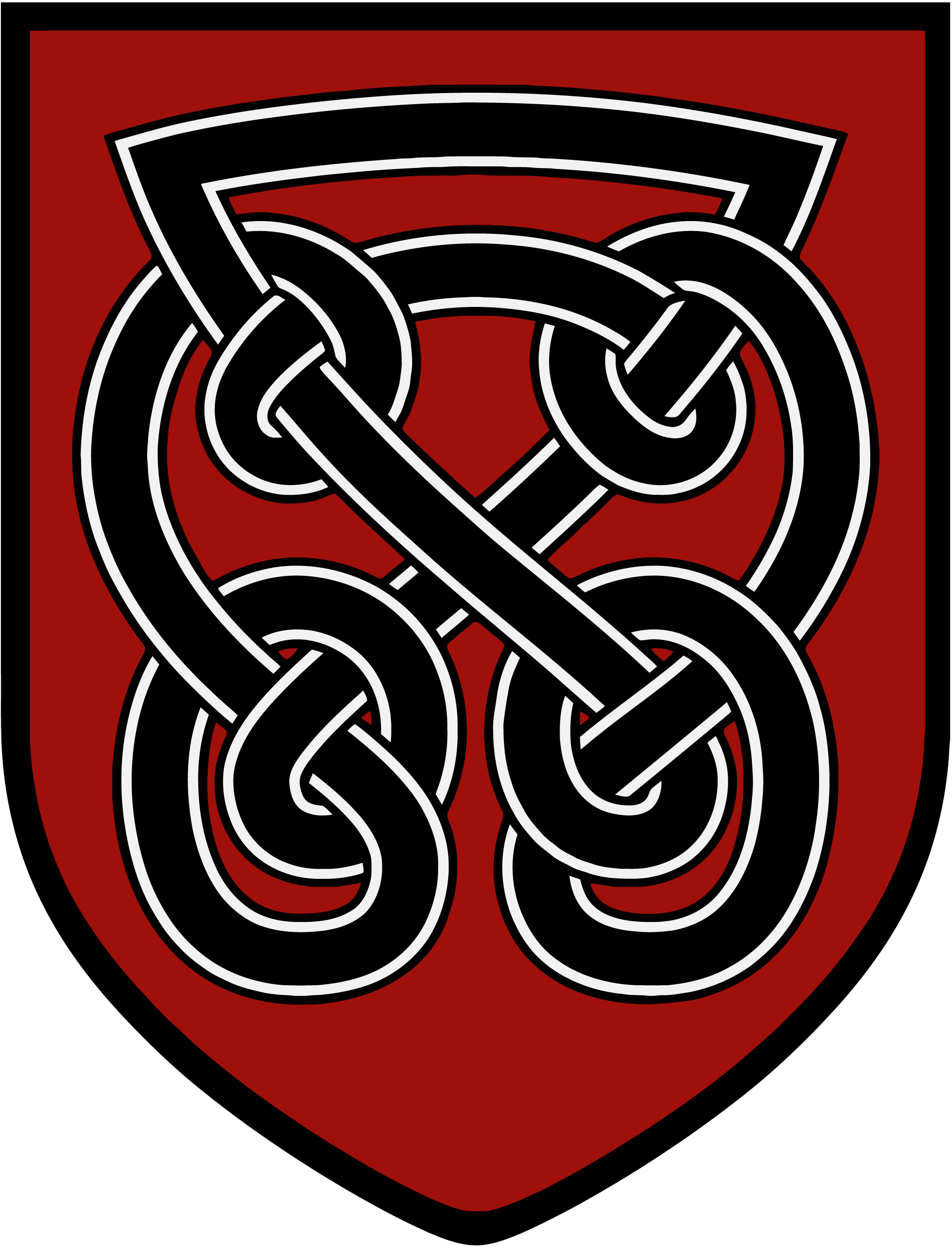
Curriculum
In the mathematics department we aim to provide a stimulating and enjoyable environment for all our students by using a variety of teaching and learning styles for all year groups.
The scheme of work, lessons, homework and enrichment give students the opportunity to develop the ability to:
- Acquire and use problem-solving strategies
- Select and apply mathematical techniques and methods in mathematical, every day and real-world situations
- Reason mathematically, make deductions and inferences and draw conclusions
- Interpret and communicate mathematical information in a variety of forms appropriate to the information and context.
Weekly homework for KS3 and KS4 is set on Sparx.
KS3
Year 7
Students follow the Sparx Maths Curriculum which is sequenced to build on prior learning, enables a deep understanding of the concepts taught and supports the delivery of high-quality teaching and learning. Students are taught in sets according to their KS2 levels, CATS data and our own baseline assessment, so they are studying at a level that suits them. Set changes can occur at any time throughout Key Stage 3, but usually take place after each termly assessment point. Students follow their personalised learning journeys based on prior attainment from KS2, CATS scores and mapped to expected outcomes at GCSE.
Year 8
In 8, students follow a modular format with a summative assessment at the end of each term. These units are in Number, Algebra, Geometry and Measure, Handling Data and Ratio and Proportion. Each unit takes approximately 6 weeks. This format enables students to study each area of mathematics in depth to help consolidate all knowledge.
Year 9
Students complete the final year of the Key stage 3 National curriculum. The topics covered in year 9 are built upon the skills obtained in years 7 and 8 to allow the higher level topics of the national curriculum that are required to be covered. These include standard form, Pythagoras’ theorem, trigonometry, proportion and similarity. These topics also provide the core skills required for the GCSE course and allow key GCSE topics to be introduced. This enables students to become familiar with these areas earlier in their mathematical studies as well as provide an opportunity for students to see how previous years content is used and applied to these newly encountered topics.
KS4 – Years 10 & 11
Students are taught in classes based on their progress and attainment at Key Stage 3. The evidence from assessments, teacher attainment and GCSE targets are used to determine the tier of study that the students commence with in Year 10
Our exam board for GCSE Maths 9-1 is Edexcel (1MA1). The higher tier assesses grades 9-4, whilst the foundation tier assesses grades 5-1. We teach a 2-year GCSE linear program which starts at the beginning of Year 10.
In Year 10, we also complete all 3 stages of the entry level Maths qualification with students who require numeracy support to access the foundation GCSE course. This qualification is run alongside the covering of the GCSE syllabus as the content of both courses overlaps.
In Year 11, Set 1 students are also taught the Edexcel Level 3 Algebra Award. This is to develop their mathematical skills and assist in bridging the gap between the GCSE and A level syllabus.
All students will sit their GCSE Mathematics examination in May/June of Year 11.
There are three examination papers each counting for 33.3% of the final mark. Each paper is out of 80 marks.
KS5
In Key Stage 5, students are introduced to calculus and more complex trigonometric and geometrical problems. They will develop further their ability to communicate mathematically using algebra. Students will learn how to develop mathematical models and use them to assess solutions to problems and make predictions. A-level mathematics is a much valued qualification which provides support in the learning of a variety of other subjects.
Students follow the Edexcel specifications for A-level Maths and Further Maths.
| A Level Maths | Topics | Duration | Weighting |
| Paper 1 and Paper 2 | Pure Proof, Algebra and functions, Coordinate geometry in the (x, y) plane, Sequences and series, Trigonometry, Exponentials and logarithms, Differentiation, Integration, Numerical methods, Vectors |
Each Paper is 2 Hours | 33.3% Each |
| Paper 3 | Section A: Statistics Statistical sampling, Data presentation and interpretation, Probability, Statistical distributions, Statistical hypothesis testingSection B: Mechanics Quantities and units in mechanics, Kinematics, Forces and Newton’s laws, Moments |
2 Hours | 33.3% |
Further Mathematics is designed for students with an enthusiasm for Maths, many of whom will go on to degrees in Mathematics, Engineering, the Sciences or Economics. The qualification is both deeper and broader than ‘A’ level Mathematics. It can only be studied as an addition to ‘A’ level Mathematics.
| A Level Further Maths | Topics | Duration | Weighting |
| Paper 1 and Paper 2 | Pure Proof, Complex numbers, Matrices, Further algebra and functions, Further calculus, Further vectors, Polar coordinates, Hyperbolic functions, Differential equations |
Each Paper is 90 minutes | 25% Each |
| Paper 3 | Further Mechanics Momentum and Impulse, Work, Energy and Power, Elastic Strings and Elastic Collisions |
90 minutes |
25% |
| Paper 4 | Decision Algorithms, Graph theory, Critical Path Analysis, Linear Programming |
90 minutes | 25% |
Core Mathematics (Mathematical Studies)
This level 3 qualification was introduced for first teaching in September 2014. It is distinct from A Level mathematics and it should fit alongside a student’s main 16-18 programme. Students study this in Year 12, taking two exams which are equally weighted in the summer of Year 12.
Why study Core Maths?
The ‘Core Maths’ qualification is designed to better prepare students for the mathematical demands of study, employment and life. It will develop students’ ability to think mathematically, logically and analytically and will build skills in applying maths to new problems and issues. The Core Maths initiative is a major part of the government’s plan to increase participation and raise standards in mathematics. The course has been developed with employers, universities and professional bodies as valuable preparation for university study and employment. Core Maths will maintain and develop students’ real-life mathematical skills. The study is not purely theoretical or abstract; it can be applied on a day-to-day basis in work, study or life and includes a financial mathematics element. Studying Core Maths will also support other A-Level subjects – in particular with science, geography, business studies, psychology and economics.
Course Details:
The AQA specification builds on the knowledge, understanding and skills you will have acquired studying GCSE mathematics with a sharper focus on problem solving skills by considering and tackling mathematics in meaningful contexts. The core areas studied are financial applications of mathematics, critical analysis of data and estimation as well as the optional units including further statistical techniques, critical path and risk analysis and graphical techniques. All of which can support work in other subjects including economics, psychology, biology and geography.
Subject Content:
Paper 1
· Analysis of data
· Maths for personal finance
· Estimation
· Critical analysis of given data and models (including spreadsheets and tabular data)
Paper 2
· The normal distribution
· Probabilities and estimation
· Correlation and regression
Enrichment
Annual Events
- Senior Maths Challenge (Years 12 & 13)
- Mathematical Olympiad for Girls (Y11, 12, 13)
- Intermediate Maths Challenge (Set 1 students from Years 9, 10 & 11)
- Junior Maths Challenge (Set 1 students from Years 7 & 8)
- Hertfordshire County Team Maths Challenges for Years 7 & 8
Careers
Good qualifications and an interest in Mathematics can open doorways into many interesting and valued job opportunities:
-
“Mathematicians at work” – http://www.mathscareers.org.uk/16-19/career_profiles.cfm
-
“Maths career choices” – http://www.ehow.com/about_4728423_math-science-career-choices.html#page=0
-
“Careers with Maths” – http://plus.maths.org/content/Career
Staff
The Mathematics Department consists of ten committed specialists whose aim is for all students to enjoy the subject and achieve their full potential.
- Mrs Freya Parsons – Head of Department
- Ms Sarah Jones – Joint 2nd in Department
- Mr Alex Greenwood – Joint 2nd in Department; KS5 Mathematics
- Miss Chloe Hutton – 3rd in Department
- Mr Atof Blaal – Teacher of Mathematics
- Mrs Helen Hardwick – Teacher of Mathematics
- Mrs Fiona Rosler – Assistant Headteacher Teaching & Learning
- Miss Sam Walker – Teacher of Mathematics; Head of Year 8
- Mrs Amita Patel – Teacher of Mathematics
- Mrs Sandhya Pagilla – Teacher of Mathematics
- Mrs Tracy Geldman – Intervention Tutor
Links
- EDEXCEL (Our Exam Board) – http://qualifications.pearson.com/en/qualifications/edexcel-gcses/mathematics-2015.html
- Mathsgenie – www.mathsgenie.co.uk
- Corbett maths – https://corbettmaths.com/
- Sparx maths – https://sparxmaths.com/
